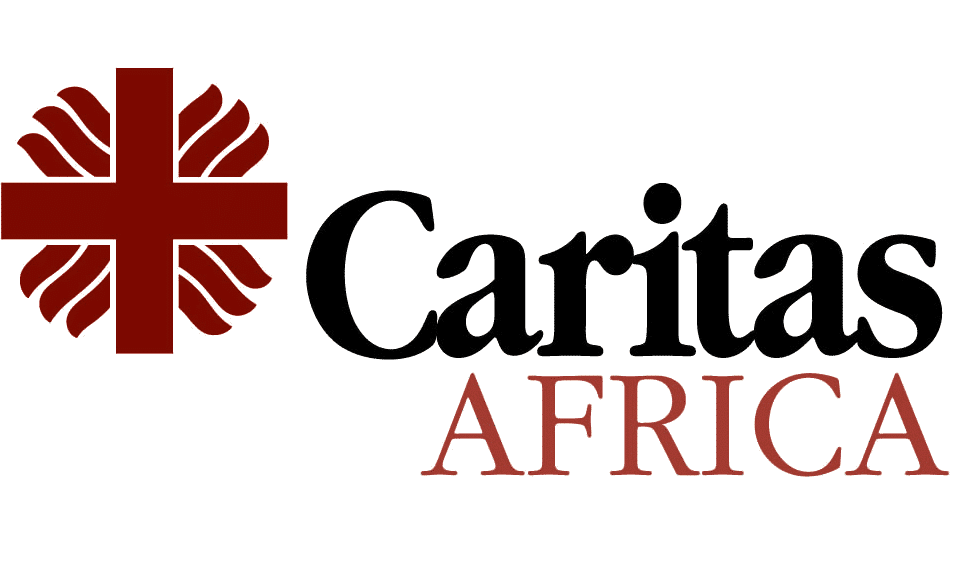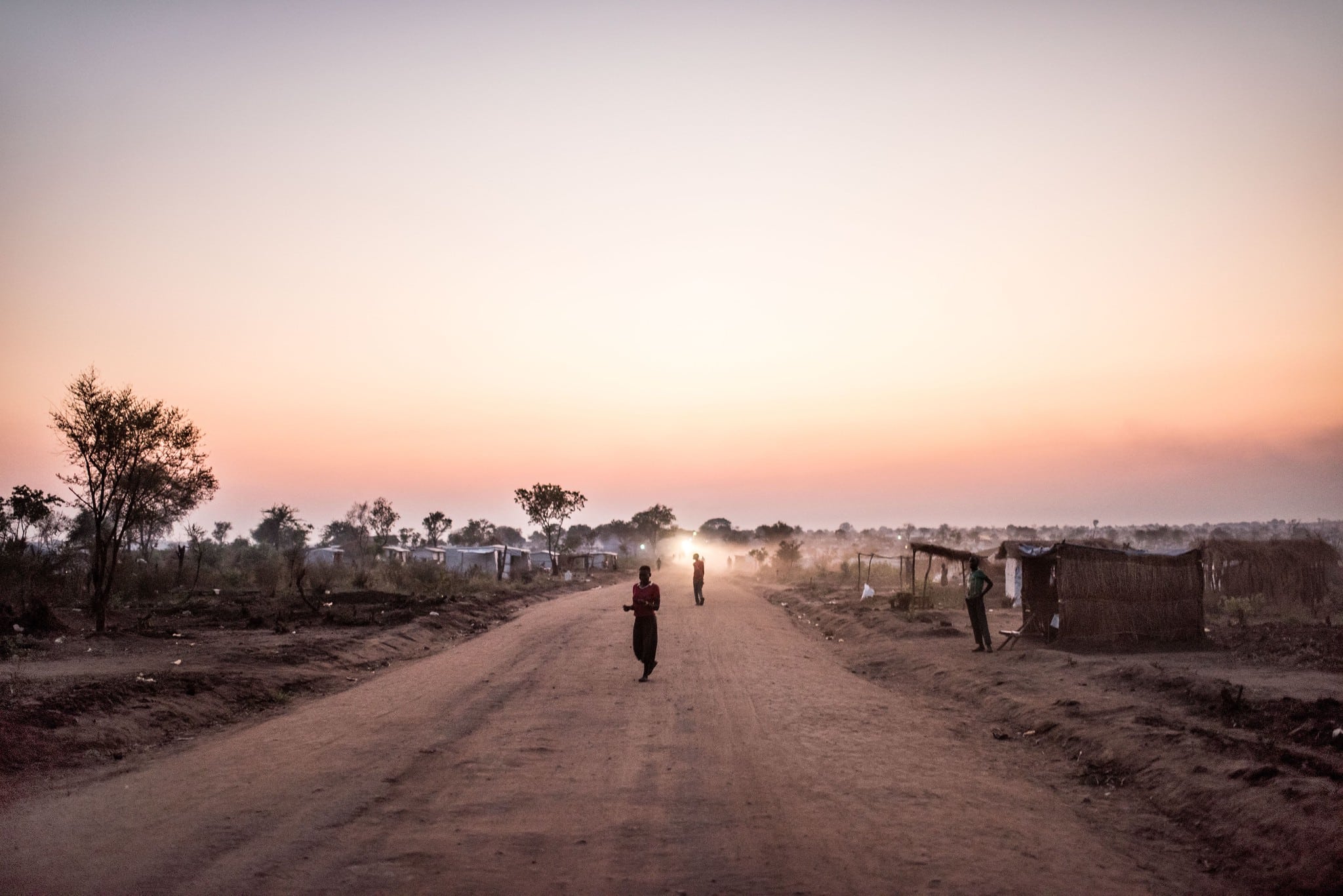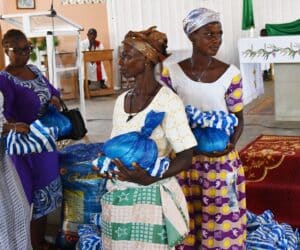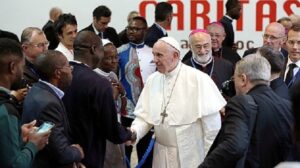How can the new EU-Africa partnership take a balanced and sustainable approach to migration ?
| “It does help to listen to communities to understand what is lacking, instead of imposing our ideas based on what we think would work for them” (Ottilia Anna Maunganidze, Head of Special Projects at the Institute for Security Studies, South Africa) |
Introduction
In the recent past, the European Union has increased its migration-related investments in Africa in an effort to address the root causes of forced displacement and irregular migration and contribute to better migration management. Notably, EU initiatives have also played a pivotal role in shaping migration policies within Africa and its sub-regions, such as some degree of free intra-African mobility as envisioned in the Abuja treaty. Today, migration is one of the key priorities discussed in several parallel processes of the EU agenda on external action, such as the recent EU-OACPS agreement, the new Global Europe financing instrument, the EU Pact on Migration and Asylum and the forthcoming EU-AU Summit, which will guide the future of EU-Africa relations.
But what are the African priorities and aspirations for migration and mobility? Evidence suggests that most Africans migrate regularly, mostly within Africa, for work, education and family reasons in search of development and social opportunities. This contradicts the current misconception that Africa is a continent of mass migration and displacement, caused by poverty, violence and environmental stress. At the same time, while the 2018 AU Migration Policy framework calls for an inclusive approach by governments in migration policy formulation, that goal is hampered by stakeholders’ competing interests and lack of policy coherence at the national, local, regional and intercontinental level.
In this context, a virtual roundtable convened on 21st April 2021 by Caritas Europa and Caritas Africa, in collaboration with ACT Alliance EU, explored “how the new EU-Africa partnership can take a balanced and sustainable approach to migration”.
| “In our view, the EU-led processes and debates lack a comprehensive understanding of Africa’s priorities, opportunities, and challenges regarding migration. Moreover, the engagement of civil society from both continents was given little attention in the elaboration and implementation of the new framework for the EU-Africa partnership. Yet, civil society complements governments efforts through research, facilitation of civil registration processes, protection and advocacy on migrants’ rights.” Lucy Esipila, Policy and Advocacy Officer, Caritas Africa |
Hence, the dialogue with African civil societies and EU and AU policymakers provided us with the opportunity to re-direct the attention to a comprehensive, balanced, and long-term vision for sustainable migration while highlighting Africans’ aspirations and priority objectives in the new EU-Africa partnership.
Friction between the EU and Africa’s competing aspirations and priorities for migration and mobility
In the area of migration, the EU and the AU often have divergent narratives and goals, which are not aligned. As Ottilia Anna Maunganidze, Head of Special Projects at the Institute for Security Studies (South Africa), pointed out during the webinar, from the African side migration is seen as a development issue. African countries traditionally underline legal migration, remittances, and protection of migrants’ rights in discussions on migration. Meanwhile, however, the EU focuses on the securitisation of external borders, combatting smuggling and enforcing returns and repatriations. Even though research suggests that the majority of African migration occurs regularly, irregular migration dominates today’s EU policies and discussions.
This narrow approach focussed on the securitisation of migration distracts the EU from providing effective solutions to the root causes forcing people to move irregularly and continues reinforcing a negative perception of EU policies on migration in Africa. An example of such an approach can be seen in Nigeria, which is considered as a key origin and transit country for West African migrants on their move to Europe. Maria Nkese Udongwo, Director for Humanitarian Services at Caritas Nigeria, underlined that the overwhelming focus of EU policies on border control and movement restrictions has been counter-productive for the country. In fact, such interventions have inadvertently contributed to an increase in people smuggling, stimulated the illicit economy and increased human rights violations against migrants, especially women.
Shifting the EU-AU dialogue toward more transformative actions
Against this backdrop, representatives of African CSOs urged EU and AU policymakers to embrace a more holistic and long-term vision on migration management. Mary Obiero, Director at Church World Service (CWS) Africa, emphasized that the human dignity of people on the move should be placed at the centre of the EU-Africa migration partnership, and that this cannot happen, however, without enhancing engagement with national and local CSOs and facilitating their participation in the design and implementation of migration-related projects. Ms. Obiero also said that since migration is a multifaceted phenomenon driven, among others, by poverty, unemployment and conflict, related projects and interventions should focus on long-term development, poverty reduction, fighting inequalities, and building sustainable communities. The EU must focus more attention to intra–African migration, which is key for economic and social-structural transformation, and can contribute substantially to the development of the continent.
Both EU and AU high-level representatives engaged in the discussion supported a positive narrative on migration. Sabelo Mbokazi, Head of the Labour, Employment and Migration Division in the Department of Social Affairs at the African Union Commission, underlined the importance of effectively implementing the Global Compact on Migration as a key framework to ensure safe, orderly, and regular international migration as well as the importance of placing safe and dignified migration higher in the agenda of AU-EU meetings. He also gave examples of positive measures discussed in these AU-EU fora, such as the repatriation of Sub-Saharan migrants trapped in Libya and further research on the needs related to return, re-admission, and reintegration.
From the EU side, Francesco Luciani, Head of Unit for Migration and Forced Displacement at the European Commission’s Directorate for International Partnerships, acknowledged the importance of challenging the accepted narrative and focusing on facts, repeating points made by previous speakers, namely that the EU and Africa need migration, migration is good for the development of our societies, most migration is within Africa, most African migration to Europe takes place through regular channels, and most irregular migration into Europe originates in Asia, not Africa. He also restated the importance of putting human rights at the centre of EU external action and ensuring legal pathways are in place, including through pushing EU Member States to make concrete proposals in this area, for instance, by facilitating regular migration structures that link migrants to the needs of EU labour markets as envisioned in the new EU Pact for Migration and Asylum.
To ensure these words do not remain empty, more concrete actions are needed. One positive way forward would be to allocate the 10% spending target for migration within the Neighbourhood, Development and International Cooperation Instrument (NDICI/Global Europe financial instrument to long-term sustainable development objectives (a recent Caritas Europa and Act Alliance EU-endorsed policy paper supporting this can be found here). For example, as Maria Nkese Udongwo pointed out, in the context of Nigeria, this would require designing migration-related programmes thoroughly rooted in the SDGs, enhancing fair trade agreements, and supporting increased access for Nigeria to global markets with an eye toward improving people’s livelihoods. Maximising the potential of remittances and supporting the free movement of persons in the ECOWAS area are other key actions impacting positively the regional economy and boosting job creation.
Understanding migration through a development lens: a way forward
As a follow-up of this discussion, here are our takeaways and recommendations:
Firstly, it is urgent to recognise the complexity of the migration phenomenon. Migration must be seen as a part of a broader context, namely that of sustainable development. It means that migration-related interventions cannot be further addressed – and debated – in isolation. Crucial aspects impacting positively and linked to migration are employment and job creation, trade agreements, youth empowerment, climate change resilience. A gender lens must also be applied when designing and implementing stages of migration policies and projects.
Secondly, it is overdue to build a partnership based on trust, frankness, and transparency. Dialogue and cooperation between the EU-AU must continue and be beneficial for both parties. The challenge here is to dismantle false assumptions and stigma around migration and maximise the understanding of real common priorities. In practice, this means that while irregular migration and return and readmission are part of the migration agenda, they cannot be sustained as the main objective of the EU-Africa partnership nor be seen as a bargaining chip in the hands of the EUf or the establishment of a “mutually beneficial cooperation”, as Francesco Luciani argued. On the contrary, the new partnership framework should considerably raise the level of ambition in implementing already-existing commitments – including legally binding agreements – regarding human rights and safe and regular pathways for migration. This is not what is seen today in the EU’s approach, but is what is needed to contribute to a more positive narrative on migration and build a real “partnership of equals” ahead of the 6th EU-Africa Summit.
Most importantly, it is crucial to empower civil society and community-based organisations to leverage their perspectives in framing the migration agenda. CSOs are key allies to the achievement of the SDGs by helping local communities understand migration policies, raising awareness about the dangers of smuggling, supporting survivors, and ensuring the respect of human rights and the dignity of migrants and returnees. For this reason, enabling a structured dialogue with civil society and facilitating the involvement of local actors is a pre-condition to ensure that the migration-development nexus is strengthened in the new EU-Africa strategy.
To ensure the partnership on migration takes a more balanced and sustainable approach, Caritas Europa, Caritas Africa, and ACT Alliance EU will continue engaging with African and EU-based civil societies and policymakers in the lead-up to the 6th AU-EU Summit.
Find the program of the webinar here.



